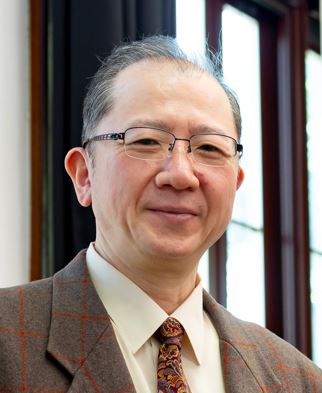Toshiyuki Sadanobu, President, Linguistic Society of Japan
Kyoto University

Welcome to the Linguistic Society of Japan (LSJ) website!
The Linguistic Society of Japan is an academic society that supports scientific research on language: any language, in any time or place. Participants in the Society are free to study and discuss spoken language including gesture, written language, and of course sign language and tactile sign language, from any school of thought or point of view. The Society welcomes study of the forms, functions, grammar, and semantics of language, as well as its connections to people and society.
Participants in our spring and autumn meetings and summer seminar can not only learn about language but meet up with new research colleagues as well. Contributors to the LSJ journal Gengo Kenkyu can obtain advice from specialized points of view and deepen their own perspectives. You are welcome to join us in learning together about language.
As the Society’s new president, I would like to introduce myself. My name is Toshiyuki Sadanobu, and I’m honored succeed Dr. Naoki Fukui, and thank him for his contribution.
I study grammar, mainly in contemporary Japanese. Since Japanese is my native language, it does not present the various difficulties entailed in studying another language. It humbles me though, to think of how my predecessors in this post have been a succession of scholars who could be said truly to embody the field of linguistics.
I joined the LSJ about 35 years ago as a graduate student. That was the time of the Fifth Generation Computer Systems project, in which Japan promoted development of artificial intelligence to converse with human beings and translate languages as a national priority. I too worked on joint research with information-processing researchers. An information-processing researcher at the time predicted that computer processing power would grow a hundredfold in ten years’ time. This would make it possible to do things that had been inconceivable at that time, as computers became able to handle 10,000 times more data in 20 years and one million times more in 30 years. It appears that this prediction is coming true in our world today. The high-level performance of AI is beginning to create a situation where linguistic research can no longer remain in its traditional form.
It is needless to say that linguistics research should adapt with the times and develop in new forms as it applies such latest technologies in some ways. However, at the same time, it is likely that this trend will make it even clearer just what are the fundamentals that we need to preserve. Life is not an accumulation of data. The exploration of the root meaning of living in the moment here and now and exchanging words with people will continue to be our human’s “interesting” business. I think we must continue to hold it.
I intend to do whatever I can over the coming three years on behalf of the Society and its activities. I would appreciate the cooperation of our members. I also would encourage those who are not yet members to join the LSJ, as we learn and think about language together.